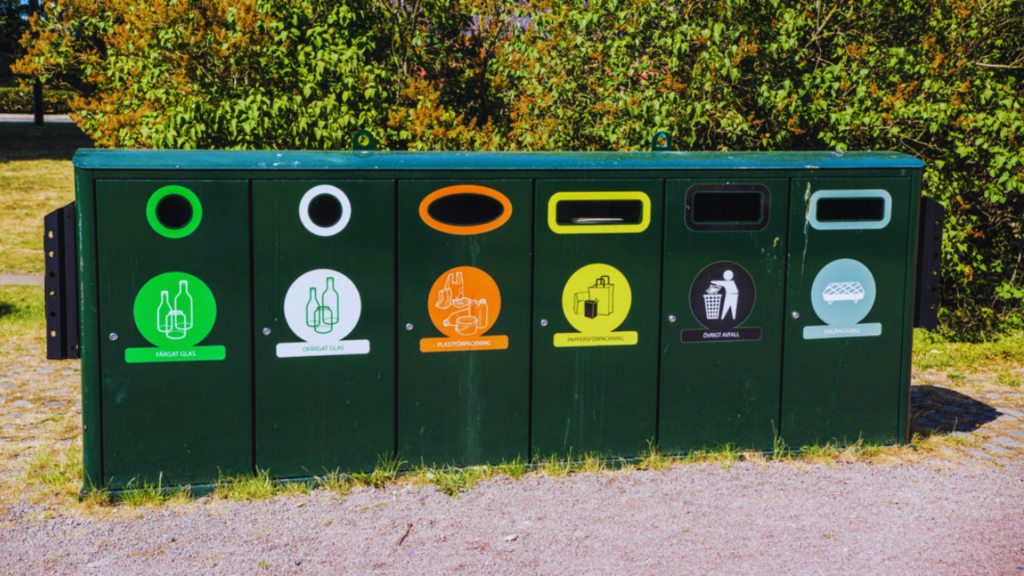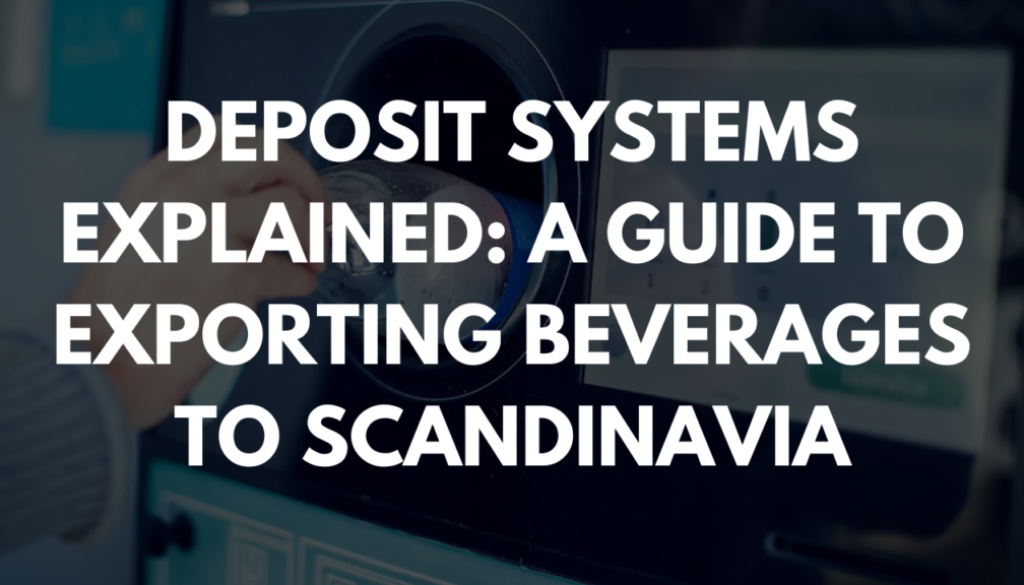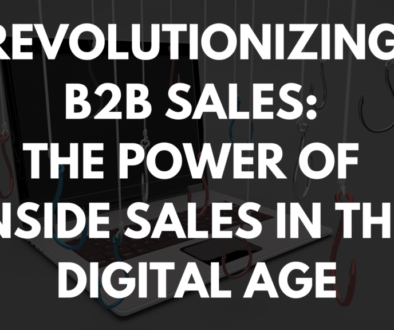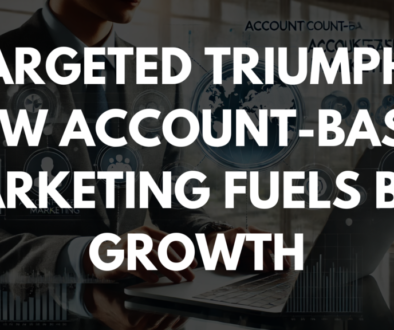Deposit Systems Explained: A Guide to Exporting Beverages to Scandinavia
Scandinavian countries have implemented highly effective deposit systems, including a bottle deposit fee, that encourage recycling and contribute to both environmental sustainability and economic growth.
These deposit systems add a small fee to beverage containers, which people get back when they return the containers for recycling. This simple approach not only encourages responsible waste management but also creates funding for environmental projects across the region. The success of these systems has inspired countries around the world to adopt similar models, helping to boost recycling rates globally.
With Denmark, Norway, and Sweden leading the way, Scandinavian countries have set a high bar for effective recycling programs. For beverage exporters, understanding these systems is now essential to succeeding in these markets.

The country’s beverage industry requires an export license for companies to sell their products internationally.
This regulation ensures that Danish standards are maintained, safeguarding the reputation of Danish beverages in the world market. Historically, Denmark’s engagement in global trade can be traced back to the 17th century, where it played a pivotal role in shaping trade routes and practices. Fast forward to modern times, Danish companies export a significant amount of beverages, contributing to the country’s total exports.
The economic benefits of such exports are immense, providing a steady influx of foreign currency and enhancing the nation’s per capita income.
In terms of raw materials, Denmark imports a considerable volume to sustain its beverage production. The availability of beverage containers is crucial, as they ensure the safe storage and transportation of products. The global demand for Danish beverages necessitates the import of high-quality raw materials to maintain production standards.
Danish companies are recognized for their innovative approaches and commitment to sustainability, often setting benchmarks for other countries.
For example, Denmark’s adoption of green technologies in the beverage industry has set a precedent for Sweden, Germany, and Norway. This eco-friendly approach not only enhances the environment but also attracts environmentally conscious consumers from around the world. The World Bank and United Nations have acknowledged Denmark’s efforts in promoting sustainable business practices.
These endorsements further boost Denmark’s image in the international arena, encouraging more companies to adopt similar strategies.
The integration of sustainable practices in the beverage industry has also been documented in publications by the University Press and United Nations reports. The beverage industry in Denmark has navigated through various challenges, including fluctuations in crude oil prices and the impact of the civil war on global supply chains. Despite these obstacles, Denmark has managed to sustain its export levels, showcasing resilience and adaptability.
As of June 2013, Danish exports had reached new heights, reflecting the industry’s robust growth.
The demand for Danish beverages in foreign markets continues to rise, supported by effective foreign policy and strategic trade agreements. These agreements facilitate smoother transactions and reduce barriers, enabling Danish exporters to penetrate new markets. Danish businesses in the beverage sector are renowned for their quality and innovation.
Major exports to France, Russia, Canada, and the United Kingdom highlight the global appeal of Danish beverages.
These exports not only contribute to Denmark’s total exports but also enhance its reputation as a leader in the beverage industry. Denmark’s beverage industry exemplifies how strategic policies, sustainability, and innovation can drive economic growth and global influence.
By continuing to invest in sustainable practices and maintaining high-quality standards, Denmark is poised to remain a significant player in the world market for beverages.
Denmark’s Deposit System: An Overview
In Denmark, a deposit refund system applies to both single-use packaging and reusable bottles, positioning the country as a frontrunner in promoting recycling and minimizing waste.
A distinctive deposit mark is used exclusively for disposable containers, providing clear guidance for consumers and enhancing the efficiency of the recycling process.

Products Requiring a Deposit in Denmark
The following products require a deposit in Denmark, reflecting the country’s comprehensive approach to waste management in the beverage industry:
- Beer
- Carbonated beverages (e.g., soft drinks with 0-0.5% alcohol)
- Fermented beverages, excluding wine and fruit wine (e.g., cider with less than 10% alcohol)
- Mixed beverages based on strong alcoholic beverages, wine, or other fermented drinks mixed with mineral water, cider, or juice (e.g., alcoholic mineral drinks with 0.5-10% alcohol)
- Mineral water, spring water, water, lemonade, iced tea, etc., that are immediately drinkable and non-carbonated
- Concentrated juice that needs mixing with water before consumption
- Pure juice, juice drinks, or wort made from fruits or vegetables
- Smoothies (without milk)
Prices for Single-Use Packaging
Deposit-marked cans and bottles are single-use packages that are recycled by melting into new cans and bottles.
This system significantly contributes to reducing waste and promoting the use of beverage containers.
- Deposit A = 1 Danish krone (glass bottles and metal cans under 1 liter)
- Deposit B = 1.50 Danish kroner (plastic bottles under 1 liter)
- Deposit C = 3 Danish kroner (all bottles and cans with a volume of 1-20 liters)
Prices for Reusable Packaging
Bottles without a deposit mark are reusable and cleaned and refilled by the manufacturer, returning to circulation without being melted down.
This reusable system underscores Denmark’s commitment to environmental sustainability.
- Glass bottles up to ½ liter = 1 Danish krone
- Glass bottles over ½ liter = 3 Danish kroner
- Plastic bottles under 1 liter = 1.50 Danish kroner
- Plastic bottles of 1 liter and above = 3 Danish kroner
Deposit for Beer and Mineral Water Crates
In Denmark, the deposit system for beer and mineral water crates introduces an additional layer of flexibility and customization within the broader deposit refund framework.
Unlike the fixed deposit rates for single-use and reusable bottles, the deposit prices for beverage crates are not standardized across the country. Instead, individual stores have the autonomy to set their own deposit prices for these crates.
This flexibility allows stores to adjust the deposit amounts based on various factors such as:
Crate Type and Size:
Different crates may vary in size and material, and stores can set prices that reflect the cost of the crate and the ease or difficulty of returning it.
Market Demand:
Stores in different regions or areas might experience varying levels of demand for certain types of beverage crates.
By setting their own prices, stores can respond to local market conditions, ensuring that the deposit rates are appropriate for their specific customer base.
Operational Costs:
Stores may have differing operational costs associated with handling and processing returned crates.
Setting their own deposit prices allows them to cover these costs adequately.
This approach benefits the overall deposit system in several ways:
Encourages Recycling:
By allowing stores to set deposit prices, it can create incentives for consumers to return crates, knowing they will receive a deposit that accurately reflects the crate’s value.
Supports Revenue Streams:
Stores can use the flexibility in deposit pricing as a tool to enhance their revenue streams from recycling activities.
By setting competitive yet profitable deposit rates, they can ensure that the system remains economically viable.
Promotes Efficiency:
Tailoring deposit rates to specific conditions can lead to more efficient recycling processes.
Stores can optimize their deposit rates to manage the flow of returned crates effectively, reducing bottlenecks and improving overall system performance.

For example, a store might set a higher deposit rate for larger or more expensive crates to ensure they are returned promptly and in good condition.
Conversely, for smaller or less costly crates, the deposit rate might be lower, reflecting their lower value and reduced handling costs. Overall, the ability for stores to set deposit prices for beer and mineral water crates adds a level of customization that supports the sustainability and economic goals of Denmark’s deposit system.
It ensures that the system can adapt to local conditions and needs, promoting a more effective and efficient recycling program.
How to Register Your Products in Denmark’s Deposit System
For more information on registration, visit: Dansk Retursystem. Note that English information may be limited, so you may need to contact their customer service for assistance.
Ensure to complete the registration before exporting your products to Denmark. Once Dansk Retursystem receives all required information, it takes up to four weeks to determine product registration eligibility. This process requires a properly completed registration form, two sample packages of each product variant, and compliance with deposit label requirements.
Upon approval, the relevant data is loaded into store bottle machines, and you will receive a registration certificate.
The reverse vending machine will only pay out the deposit to customers after you have received the certificate, so selling or handing over the product must wait until then.

Conditions for Obtaining a Registration Certificate from Dansk Retursystem:
- The company must pay the packaging registration fee of 2000 Danish kroner plus VAT, which is required only for the first package in a calendar year.
- A completed reporting form is necessary.
- If there are plans to apply the deposit label directly to the product, a specific confirmation must be signed upon registration.
- For labels printed directly on the product, a bank guarantee is required (this applies to primary labeling).
- For secondary labeling, Dansk Retursystem provides stickers that must be applied separately to the products, and no bank guarantee is needed.
Deposit System in Norway
The registration process for Norway’s Infinitum deposit system is slightly different from Denmark’s, reflecting the unique approaches of different countries.
Deposit Fees:
- Bottles and cans up to ½ liter: NOK 2
- Bottles and cans over ½ liter: NOK 2.50 and NOK 3
Registration Fees for Norway’s Deposit System:
- One-time membership fee: 10,000 NOK (approximately 1000 euros)
- Registration fee per product (per GTIN):
- PET and HDPE: NOK 2,000
- Aluminum and metal: NOK 1,000
An environmental fee must be paid for each container unit in Norway.
This fee is expected to be waived once the return rate of containers reaches 95%, currently at 92%. It is possible to avoid the 10,000 NOK membership fee, but the environmental fees for each product container will be significantly higher.
For example, aluminum can fees for non-members selling beer, mineral water, energy drinks, cider, or concentrated drinks in Norway with a registered barcode and packaging that is at least 75% covered with a label or sleeve will be much higher.
Calculate Your Fees
You can calculate your packaging fees with this calculator.
- Eight weeks before launch: Send four sample packages for inspection.
- Four weeks before launch: Submit twenty additional samples, this time with all necessary labels and barcodes.
- Monthly reporting: Report sales figures for each product on the seventh day of every month.
For more details, you can read the Norwegian guidelines here: Product Registration in the Norwegian Packaging System.
A comprehensive action plan is available in English here.

Deposit System in Sweden
The Swedish deposit system, known as Pantamera, is an essential part of the country’s sustainability efforts.
For detailed information on prices and taxes, including a comprehensive price list, visit: Price list for the Swedish deposit system.
International Context and Economic Benefits
Denmark’s deposit system not only enhances the country’s environmental credentials but also offers significant economic benefits.
By promoting recycling and efficient waste management, Denmark sets a benchmark for other countries aiming to improve their sustainability practices. This system is an excellent example of how deposit refund systems can work on a large scale, providing economic and environmental benefits. Exporters looking to enter foreign markets such as Denmark, Norway, and Sweden must understand these systems to ensure compliance and optimize their business strategies.
An export license and thorough knowledge of the deposit systems can be crucial for success in these markets.
Additionally, understanding the nuances of deposit systems can help businesses in the beverage industry to expand their revenue streams by leveraging these systems to promote their products as environmentally friendly and compliant with local regulations. Denmark’s model, along with those of Norway and Sweden, illustrates the importance of sustainable practices in foreign policy and trade regulations.
These systems have evolved from early recycling efforts and reflect the countries’ commitment to reducing waste and protecting the environment.
They also demonstrate how historical practices, dating back to the 19th century, have influenced modern approaches to sustainability. Denmark’s deposit system is a model for effective waste management and sustainability, offering valuable lessons for other nations around the world.
Companies looking to export to Denmark and similar markets must align with these systems to ensure compliance and capitalize on the economic opportunities they present.
Conclusion
In summary, the reuse of packaging is a priority in Scandinavian countries. Denmark, with its longstanding and actively used deposit refund systems, sees an impressive 93% return rate for deposit-marked packaging.
This system not only promotes environmental sustainability but also offers significant economic benefits. As a producer or exporter, it is crucial to register your products in the deposit systems of these countries, pay the necessary registration fees, and include the respective country’s deposit label on your packaging. Denmark charges a deposit for both single-use and reusable beverage containers, ensuring a green and sustainable approach to consumption and waste management.
The cost to buyers varies based on the type of packaging, making it crucial to follow each country’s registration process meticulously.
If needed, seek assistance to ensure compliance. Understanding and adhering to the specific requirements and fees of each country’s deposit system is vital for successful market entry. The beverage industry in Denmark exemplifies a successful blend of environmental responsibility and economic profitability, setting a benchmark for other countries to follow suit.
Denmark’s strategic focus on environmental benefits has not only reduced waste but also enhanced the economic viability of the industry.
This approach has set a precedent for other countries, encouraging them to adopt similar systems. The country’s strong presence in foreign markets is supported by a well-structured export license framework, allowing Denmark to contribute significantly to total exports in the beverage sector. Key trade partners include Germany, Sweden, Norway, France, and Canada, highlighting the global demand for Danish products.
Denmark’s efficient production processes and strategic use of raw materials have created diverse revenue streams, ensuring the industry’s resilience against global economic fluctuations.
Countries around the world, including the United Kingdom and Russia, continue to recognize the value of sustainable practices, positioning Denmark as a leader in this field. The collaboration with international bodies like the World Bank and adherence to global treaties, such as those by the United Nations, further underscore the importance of Denmark’s approach to trade and sustainability. By leveraging historical strengths from the 17th and 19th centuries, Denmark has maintained its status as a significant exporter, ensuring continued growth and innovation in the beverage industry.
The Danish beverage industry’s commitment to sustainability, combined with its strategic export practices and compliance with deposit refund systems, not only boosts its economic standing but also sets a global example for environmental stewardship and efficient resource management.
Learn more about Scandinavian Market:
The Law of Jante in Scandinavian Business
Hygge: Its Influence on Danish Daily Life and Business
The Beautiful Influence of Hygge on Danish Life and Happiness




